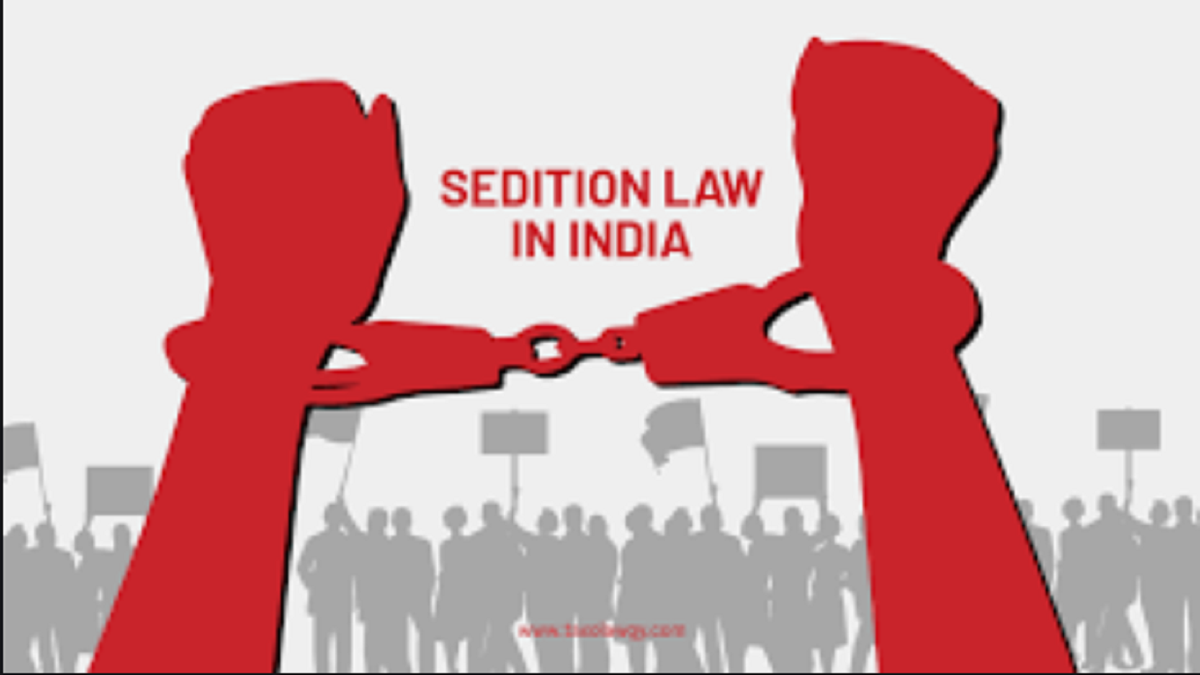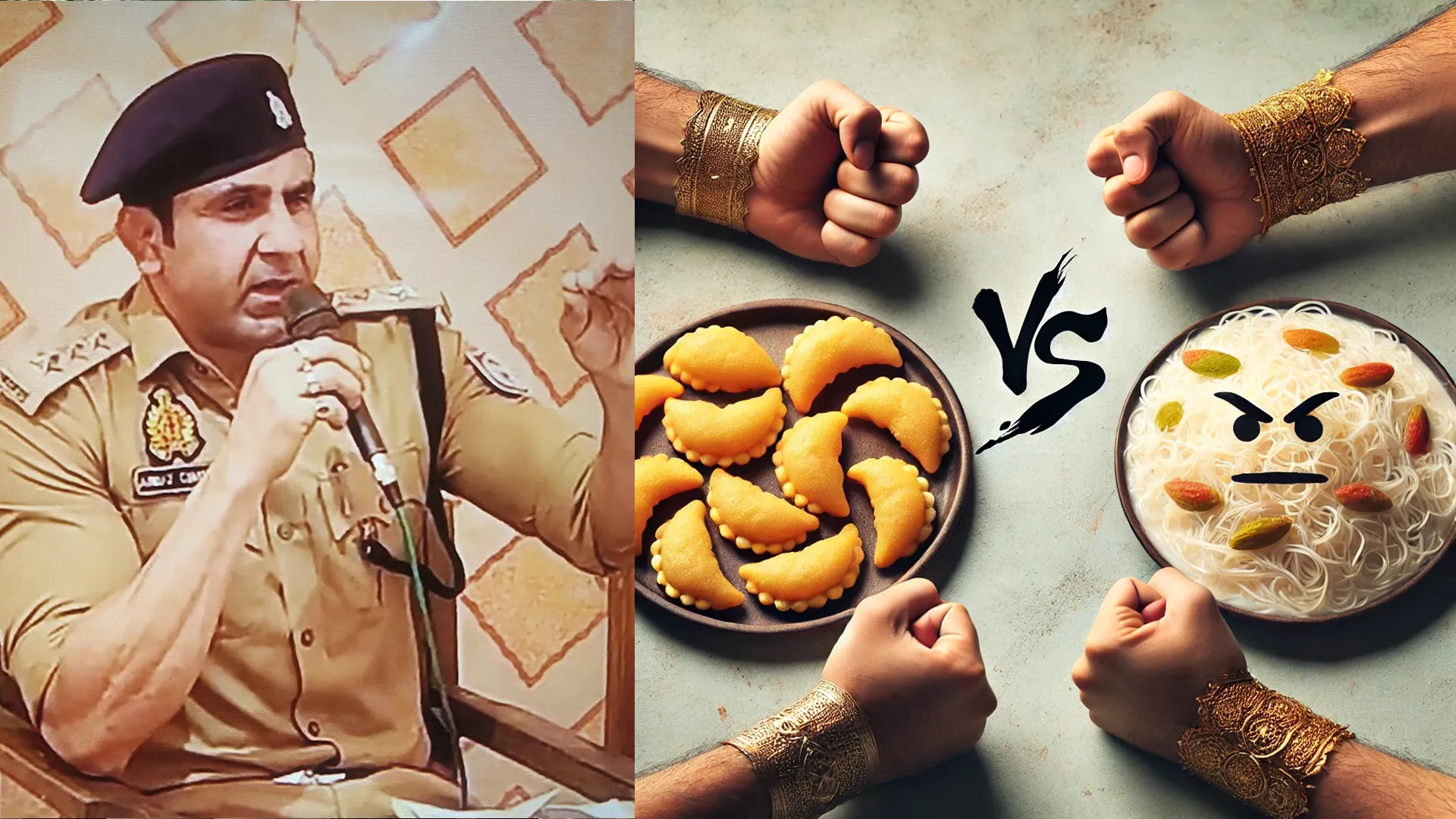In an unprecedented development apex court recently passed an interim order to put section 124 A commonly known as Sedition Law of the Indian Penal Code in the dormant state till Either the Union Government comes with amended provisions regarding the said law or the Hon’ble Court final adjudicatesthe issue. It is pertinent to note here that the Sedition law is 152 years old colonial law and many of our freedom fighterslike Annie Besant, VD Savarkar, Bal Gangadhar Tilak (Queen Empress V. Bal Ganga 1898) & Mahatma Gandhi were convicted under the same law during India’s Struggle forfreedom. This provision was extensively used to curb the political dissent during the Independence movement.
The Sedition Law has been originated in England, where King was considered the pre-eminent, and anything said or done against the king tantamount to his insult, hence England lawmakers drafted provisions regarding dealing with such acts.
When India was under British Control, IPC was drafted by Thomas Macaulay, and Sedition was not introduced initially under the legislation, later it was included as an offense through special Act XIV. This law was introduced specifically for anything done against the king but after India got independence our lawmakers mix up provisions of treason and defined Sedition under IPC as, “Whoever, by words, either spoken or written, or by signs, or by visible representation, or otherwise, brings or attempts to bring into hatred or contempt, or excites or attempts to excite disaffection towards the Government established by law in India” shall be punished with imprisonment for either description of 3years which may be extended for life or fine or both. It is a Non-Bailable offense and the Government is entitled to seize the passport of the convicted under this section and shall not be eligible for any government job.
The provisions contained under 124A explicitly provide that one is free to criticize the government in power but the said criticism shall not be attempting to excite hatred, contempt, or dissatisfaction.
In a significant amendment to Criminal Law Amendment 26 of1955, the previous punishment Under 124A IPC replacedTRANSPORTATION FOR LIFE with IMPRISON LIFE. The said amendment has been criticized by eminent law professionals. After the independence, we came across many cases under this section and some of the most important ones are discussed hereunder;
Romesh Thapar V State of Madras (950 CRILJ 1514, [1950] 1 SCR 594, AIR 1950 SC 124, (1950) 2 MLJ 390, LQ/SC/1950/24) the Supreme court liberally interpreted the provisions of the sedition law in this case and held that any criticism of Government exciting dissatisfaction feeling towards the government shall not be regarded as justifying ground for restricting the freedom of speech and expression of any individual unless said dissatisfaction may undermine national security. It can be safely concluded that in this case Supreme court promotes freedom of speech & expression and narrowed the scope of Sedition law for the general good.
TARA SINGH GOPI CHAND V. STATE
The Punjab & Haryana High Court asserted that section 124A was used as a tool to curb the freedom of speech & expression by the Britishers during their regime and it has no role to play in independent India, hence held is Unconstitutional.
Allahabad High Court asserted the same view in Ram Nandan V. State of Uttar Pradesh (AIR 1959 All 101, 1959 CriLJ 1) promoting freedom of speech and enabling government criticism.
Meanwhile, the most important Judgement about this issue came in 1962 in Kedarnath Singh V State of Bihar (1962 AIR 955, 1962 SCR Sulp. (2) 769) where a Supreme 5 judges Constitutional bench where all the previous judgments were overruled in this case and it ultimately upheld the Constitutionality of Section 124A. meanwhile, it was suggested that Government should not invoke this section in every case to curb the freedom of any individual and its scope was defined. The court explicitly held that ‘criticizing the Government is itself would not fall under the category of Sedition unless the said criticism is accompanied by incitement to promote hatred against the government established by the law. Seven guidelines were put forth by the Supreme court to define sedition.
The most recent case involving the said provision is Vinod Dua V Union of India (LL 2021 SC 266) where an FIR was registered against renowned Journalist Vinod Dua for criticizing the Government for the mismanagement during the Covid, the FIR was quashed by the Apex Court. Further Apex Court suggested Government amend the Sedition Law.
It is pertinent to note here that cases registered by invoking section 124A were not recorded in National Crime Record Bureau before 2014, currently, we have approx. four hundred cases invoking the said section out of which only 144 charge sheet U/S 173 of Criminal Procedure Code 1973 has been filed by the police after investigation. The conviction rate of the said section is negligible.
The reason behind the low conviction rate can be traced to the fact that most of the cases U/S 124A of the Indian Penal Code are politically motivated. Recently we have seen how GehlotGovernment invoked the Sedition cases against their MLAs and said the decision of the Rajasthan government was widely criticized. Even Maharashtra Government invoked Sedition charges against MLAs which were ultimately quashed by the High Court.
The government has categorically asked for some time for the amendment in the Section 124A, petitioners argued in the present petition that we already have UAPA and other laws to deal with the law and order situation in the country and an Independent Democratic Country like India doesn’t need any such colonial law to curb the freedom of speech and expression of its citizens. This section is used against the journalist for curbing the criticism. If the Apex court decides to hold it unconstitutional that would result in overruling KedarNath’s judgment. The next hearing in the case would take place in the month of July and it is expected that Union Government would dilute some provisions of the said law, till then-No fresh case would be registered against any individual invoking this section and any person charged U/S 124A can approach to competent courts to get remedies.
The reason behind the low conviction rate can be traced to the fact that most of the cases U/S 124A of the Indian Penal Code are politically motivated. Recently we have seen how GehlotGovernment invoked the Sedition cases against their MLAs and said the decision of the Rajasthan government was widely criticized. Even Maharashtra Government invoked Sedition charges against MLAs which were ultimately quashed by the High Court.










